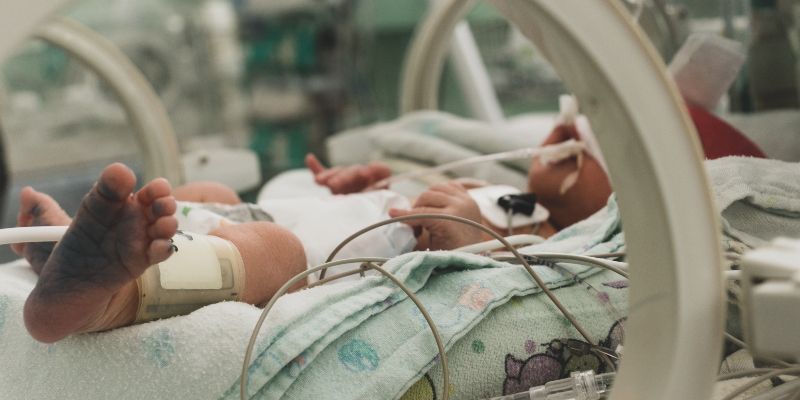
A major UK clinical trial has shown how a new approach to reduce the use of mechanical ventilation can greatly improve outcomes for critically ill infants and children.
The study was co-led by the University of Leeds and took place in several UK hospitals including Leeds General Infirmary.
It found that a greater involvement of nurses, minimising sedation use and increasing daily testing to assess the child’s readiness to come off the ventilator significantly reduced the time on mechanical ventilation.
This is an important finding for families of children who are critically ill and receive mechanical intervention over an extended period of time.
It is the largest trial of its kind and has already led to changes in practice for two-thirds of the UK paediatric intensive care units (PICUs) for the benefit of infants and children.
Compared to the current standard care, the study reported that in children who were expected to be on a ventilator for more than 24 hours, the intervention reduced the time on the mechanical ventilator by an average of six hours. Furthermore, in all children regardless if they were expected to be on a ventilator for more or less than 24 hours, the intervention reduced the ventilation time by an average of seven hours. Overall, the chances of children having their breathing tube removed successfully was greater.
The Sedation AND Weaning In CHildren (SANDWICH) trial is the world’s largest trial recruiting infants and children in PICUs. The study involved more than 10,000 admissions to 18 ICUs, accounting for two-thirds of the UK’s PICUs.
The results have been published in the Journal of American Medical Association.
Welcome findings
Annually, in the UK, approximately 19,000 infants and children are treated in a PICU and, of these, around 12,000 receive mechanical ventilation. Mechanical ventilation is a lifesaving therapy but may involve related risk caused by the breathing tube in the mouth and throat, the sedative drugs needed to reduce anxiety, and remaining confined to bed.
Co-author Professor Richard Feltbower, from the School of Medicine, said: “This is an important finding for families of children who are critically ill and receive mechanical intervention over an extended period of time.
“The reduction in the number of hours spent on a ventilator will be particularly welcomed by families of children receiving this new nurse-led care in PICU during what is a very difficult and stressful time.”
The clinical trial lead, Bronagh Blackwood, Professor of Critical Care from The Wellcome-Wolfson Institute for Experimental Medicine at Queen’s University Belfast, said: “To minimize the risks associated with mechanical ventilation, the sooner children are weaned off the ventilator, the better their outcomes.
“We have shown that nurse-led care, with daily screening to test for readiness to come off the ventilator and reduced sedation, is safe and greatly improved their chances of getting off the ventilator earlier than before.”
Worldwide impact
The trial involved training more than 2,000 doctors and nurses in the new SANDWICH intervention. This resulted in a change in practice for two-thirds of the UK paediatric ICUs for the benefit of infants and children. The success of this quality improvement intervention in changing medical and nursing practice is far reaching for other paediatric ICUs world-wide.
The research was funded by National Institute of Health Research (NIHR). Partners include: Alder Hey Hospital; Birmingham Children’s Hospital; Great Ormond Street Hospital; The Royal Brompton Children’s Hospital; the University of Birmingham; University College London; University of Edinburgh; University of Leeds; University of Salford and the Northern Ireland Clinical Trials Unit.
Further information
For media enquiries email University of Leeds Press Officer Lauren Ballinger at l.ballinger@leeds.ac.uk.
Picture: Adobe stock